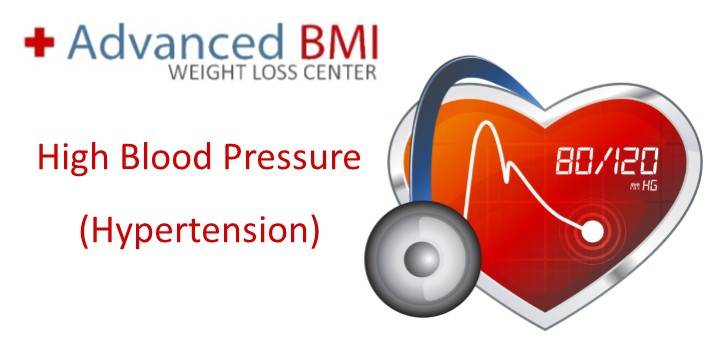Ideally, it is the pleasure of every human being to live a healthy life. In order to achieve this objective, you are required to observe proper dietary and prevent life threatening diseases. Therefore, taking balanced diet meals and visiting your doctor on a regular basis is highly recommended so that diseases and other ailments are detected at earlier stages, and treated as required. As a matter of fact, there are some diseases that have been causing sleepless nights to hundreds and thousands of people on the earth. This is none other than high blood pressure. This article will entirely dwell on everything that relates to the above condition.
What is high blood pressure or hypertension?
High blood pressure (commonly referred to as hypertension) is defined as development of high pressure as the blood flows in the arteries (arteries are the blood vessels that carry blood from the heart to all other parts of the body). In most cases, high blood pressure is associated with complications such kidney/renal disease, heart disease, eye damage, brain damage/stroke, and arteriosclerosis/atherosclerosis (hardening of the arteries). As a matter of fact, high blood pressure is a major health problem to many people, and statistics shows that at least one in every three or about 76.4 million people in USA are affected.
Causes Of High Blood Pressure
There are multifactorial causes of hypertension, which means more than one factors get combined to produce the effects of the above ailment. These include:
- High consumption of salt: In most cases, this occurs to elderly population and African-Americans who have obese conditions or people with renal/kidney complications
- Abnormal growth in arteries: This results in lack of elasticity or stiffness in the arterioles (arteries), which results in an increased resistance to blood flow. If you are an obese person, there are high chances of getting hypertension due to constrained blood vessels
- Finally, genetic predisposition is another major cause of high blood pressure. In other words, if you have one or two people in your family lineage with hypertension history, then there are high chances that the same gene get propagated to the next generations
Signs and symptoms of hypertension
There are no noticeable signs or symptoms of high blood pressure. In fact, many medical experts consider it as “the silent killer.” However, other complications such as heart attack, stroke, and kidney diseases can be some of signs of the above condition. Needless to say, they are some common symptoms of high blood pressure. These include:
- Severe headache
- Blurred vision
- Nausea
- Shortness of breath
- Feeling fast pulsation on the head and neck
- And many more
Diagnosis of High Blood pressure
As soon as you notice some of the above signs, you are advised to visit your doctor as soon as possible for immediate medical check-up. In most cases, your blood pressure is checked at several time intervals of the day. During the diagnosis, your doctor will probably keep a blood pressure log for a specified time interval and thereafter, makes a conclusive/overall results on your blood pressure trends. The standard blood pressure of a normal person is less than 120/80. In case of pre-hypertension stage, it ranges from 120/80 to 139/89. In most cases, any value from 140/90 and higher shows that the person is suffering from high blood pressure.
How to prevent and/or treat hypertension
As stared previously, the cause to hypertension is multifactorial, which means there are different ways of preventing or treating it. Indeed, the objective treating high blood pressure is just to keep the pressure value lower than 140/90. The following are of the treatment options:
1- Observe proper dietary
One of the ultimate remedy for hypertension is to lower salt intake. In most cases, it highly recommended for people to take foods rich in potassium. Some of the great sources of potassium include melons, bananas, zucchini, oranges and spinach. In addition, you are required to reduce cholesterol intake, fatty foods, and limit caffeine intake.
2- Lifestyle modifications
There are some lifestyles that have contributed significantly to the above health problem. Therefore, people are advised to quit smoking, engage in regular exercises, engage in weight loss programs, and avoid alcohol.
3- Medications
Since there are different categories of high blood pressure, which means there are different medical options for tackling each category. After diagnosis, the doctor will prescribe the right medication program. However, the following are some the common types of high blood pressure medications:
- Beta blockers
- ARB, commonly referred to as Angiotensin II Receptor antagonist
- Diuretics
- ACE, commonly referred to as Angiotensin Converting Enzyme
- And many more
Finally, another way of treating hypertension is by treating other underlying conditions that cause it, which include dealing with diseases such as renal artery stenosis, congestive heart failure, obesity, diabetes, and many more.
Final word about hypertension
From the aforementioned, it is clear that if high blood pressure is not prevented or treated at earlier stages, it will pose more health risks that can lead to sudden death. Therefore, you are advised to visit your doctor on a regular basis and get checked for hypertension. Otherwise, keep on observing proper dietary, engage in regular physical exercise, and avoid dangerous lifestyles.









